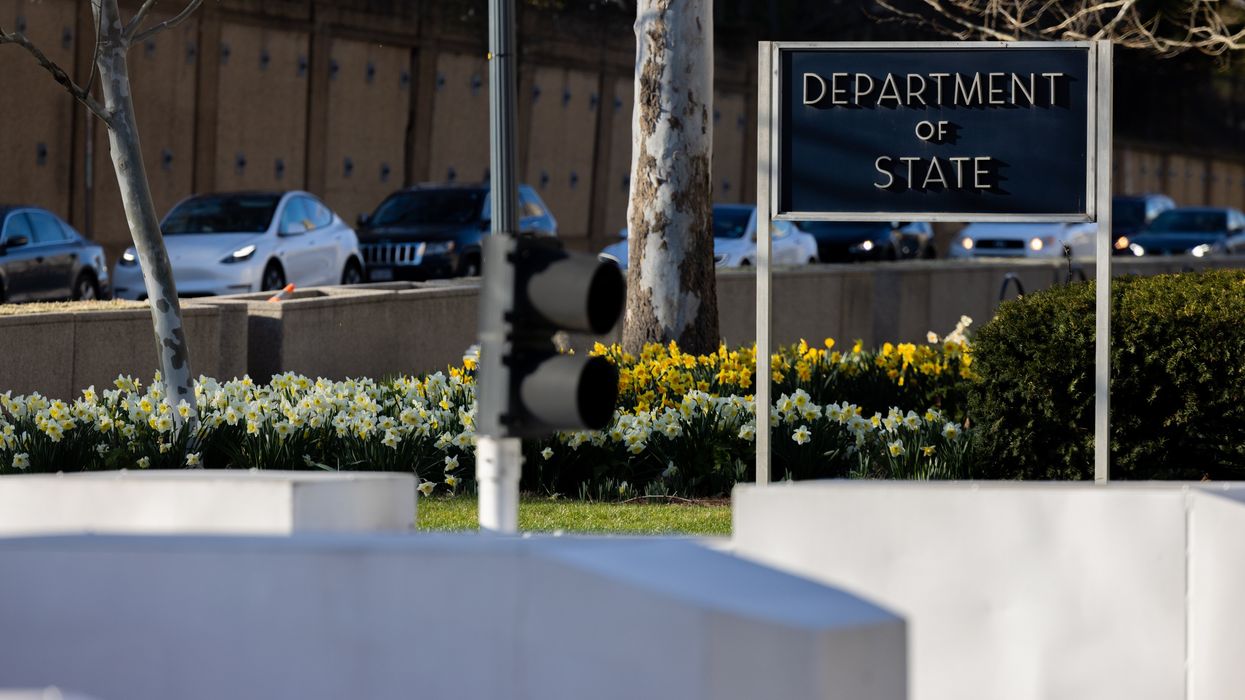Varga, author of “ Under Chad’s Spell,” was a Foreign Service office r, serving in Dubai, Damascus, Casablanca and Toronto
Two Americans were asking for a meeting with me. They had traveled from Alabama to Washington to lobby for more assistance to Lebanon, the country from which their fathers had fled to begin lives in the United States. I was the desk officer for Lebanon at the State Department. It was a fraught time with American hostages still being held.
The 1992 election had just happened, and Bill Clinton was the new president. I welcomed them into my tiny office and offered Arabic coffee that I brewed myself.
They told me about how their families had to reconfigure in America since Lebanon’s destructive civil war had forced their fathers to flee. They said they were born in America — and had U.S. passports — but still felt an obligation to try to assist their extended families back home in Tripoli and Beirut. I asked what they wanted from the U.S. government.
“We want Lebanon to be a higher priority,” Mustapha said.
“It seems like Israel gets all the focus. The Middle East has so many countries that struggle under anti-democratic regimes. We think the U.S. can do so much more,” explained Abderrahim.
I explained that my whole focus was the bilateral relationship between the U.S. and Lebanon. I told them that I often worked long hours, even on weekends, when some new crisis developed.
“It’s good to hear that,” Mustapha said. “I’m sure the guy in this job under Bush wasn’t doing that.”
“I don’t have to remind you that our tax dollars pay your salary. We just want to know that that money is being well-managed in regard to Lebanon,” Abderrahim added. A little bit of sharper tone came with that warning.
I didn’t have the heart to tell them that as a career Foreign Service officer, I had been the desk officer under George H.W. Bush. I was continuing in the same job, even with a change in presidents. I assured them that we were doing all we could, mentioning that I had held a recent meeting with the staff of Sen. Jesse Helms. The senator had placed a hold on our ability to make available to the Lebanese army excess defense articles that the Pentagon no longer needed.
They left my office, seeming satisfied with what they had accomplished. But it left me with the feeling that so many Americans didn’t fully grasp how the career bureaucracy keeps the government operating, through every cycle of new occupants in the Oval Office.
In this year of so much polarizing discussion about how Donald Trump intends to reform the agencies of the executive branch, I think it’s important to underscore the value of what the MAGA folks malign as the “deep state.” Foreign Service officers work in embassies and consulates throughout the world. While ambassadors are often political appointees, most of the other officers are part of the career service, in place no matter which political party controls the White House or Congress. That’s a good thing.
We want continuity in our policies in determining our bilateral relationships with the nations of the world. We want institutional memory to be retained as to what has been previously agreed to in establishing these working relationships. If you have a wholesale change of these career officials, you risk having to reinvent the wheel all over again. What a waste that is.
During my first assignment as a Foreign Service officer in Dubai in 1985, I had to meet with a U.S. flag vessel’s crew in the Persian Gulf after it had been boarded and held by the Iranian Navy. I had to interview the crew about the way the Iranians had treated them. The Iran-Iraq war was keeping everyone nervous. Under a ticking clock, Washington wanted to know how serious the breach had been. Was any retaliatory action by U.S. forces warranted? Fortunately, that instance proved to be a mere skirmish in the battle for influence in the Middle East.
But as you consider these claims among politicians that bureaucrats are the devil that must be expunged, think of the career diplomats who work tirelessly in some of the most dangerous places in the world to ensure consistency in U.S. foreign policy. Yes, your tax dollars are paying their salaries. I assure you you’re getting a great return on your investment.




















